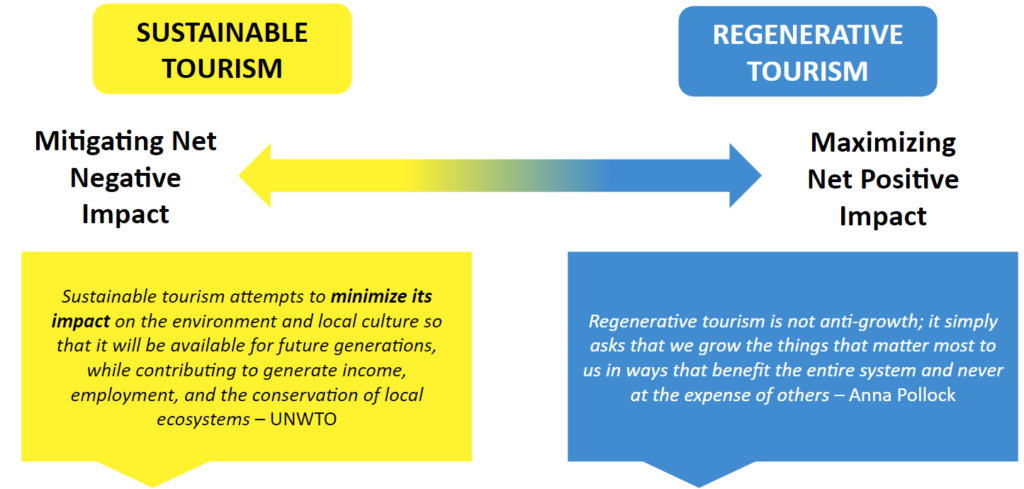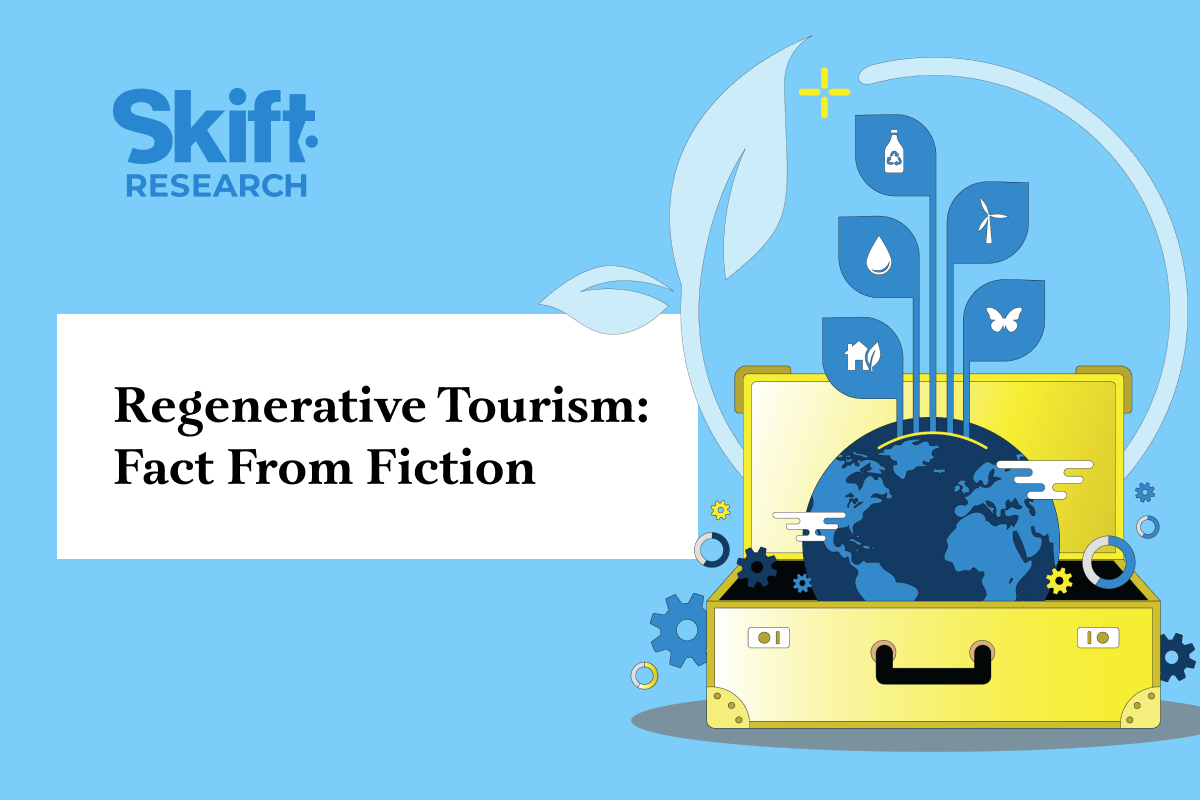Skift Take
Skift's research shows that there are real developments taking place and that it is still early enough for savvy destinations and businesses to make their mark with innovative approaches to green travel under the regenerative banner.
Skift Pro and Skift Research subscribers are able to read this exclusive extract from the latest Skift Research report. Get more insights from Skift Research to stay ahead of the industry.
Regenerative tourism has been the subject of much excitement over the past few years, but also plenty of skepticism – understandable given the travel industry’s history with greenwashing.
Many leading advocates for sustainable travel have some strong reservations. According to Darrell Wade, founder of Intrepid Travel, “regenerative tourism tends to focus on the small and positive rather than the large and negative.”
Skift Research tackles the emergence of regenerative tourism in our first entry in the “Fact from Fiction” series on sustainability issues relating to tourism.
But first, what exactly is regenerative tourism? The simplest definition is that it seeks to maximize tourism’s positive impact on destinations, communities, and the environment, rather than merely minimizing harm. This makes perfect sense in principle, but doesn’t guarantee meaningful action or get at the practical issues like how to implement it in real life.

The big challenge with regenerative tourism is that it has no clearly defined or scaleable methodology. This makes it the subject of passionate debate. Yet despite the skepticism, there is an opportunity for destinations and tourism businesses to become not just early adopters, but trailblazers. It is responding to demand for more culturally immersive and participatory forms of travel that give something back.
According to our research, a majority of travelers believe supporting destinations that practice green tourism will grow more important. This is particularly the case for the most populous countries of China and India. Regenerative tourism is often considered a post-pandemic “build back better” concept so this is in keeping with how it can market itself.

Challenges with Regenerative Tourism
There are significant challenges around credibility. Both consumers and experts are often suspicious of green buzzwords, the solution to which is defensible data and a clear methodology, both of which regenerative tourism lacks at any scale.
Unlike sustainable tourism, which has been codified into standardized metrics by the likes of the Global Sustainable Tourism Council and Earthcheck, there is no agreed upon set of metrics for regenerative tourism, and its implementation has so far been piecemeal and highly site-specific.
Regenerative tourism can still be a compelling opportunity for the industry. But it is critical not to make exaggerated or unproven claims. It also further highlights why the lack of a standardized system of measurement and certification is such an issue for regenerative tourism.
The concept also faces criticism for claiming to be entirely new. But repurposing previously degraded sites for impactful tourism has taken place for years, as examples such as the Eden Project attest.

Most critically, any successful approach to regenerative tourism must avoid the trap of becoming a vehicle for greenwashing or a distraction from addressing climate change.
Causes for Optimism
Skift’s research shows that there are real developments taking place and that it is still early enough for savvy destinations and businesses to make their mark with innovative approaches to green travel under the regenerative banner.
Additionally, there are potential solutions to the challenges we outline, and work is already being done to make this a reality and protect regenerative tourism from these potential pitfalls, while maximizing its potential positive impacts.
Get Skift Research
Skift Research products provide deep analysis, data, and expert research on the companies and trends that are shaping the future of travel.
Have a confidential tip for Skift? Get in touch
Tags: climate change, sustainability, tourism, Travel Trends
